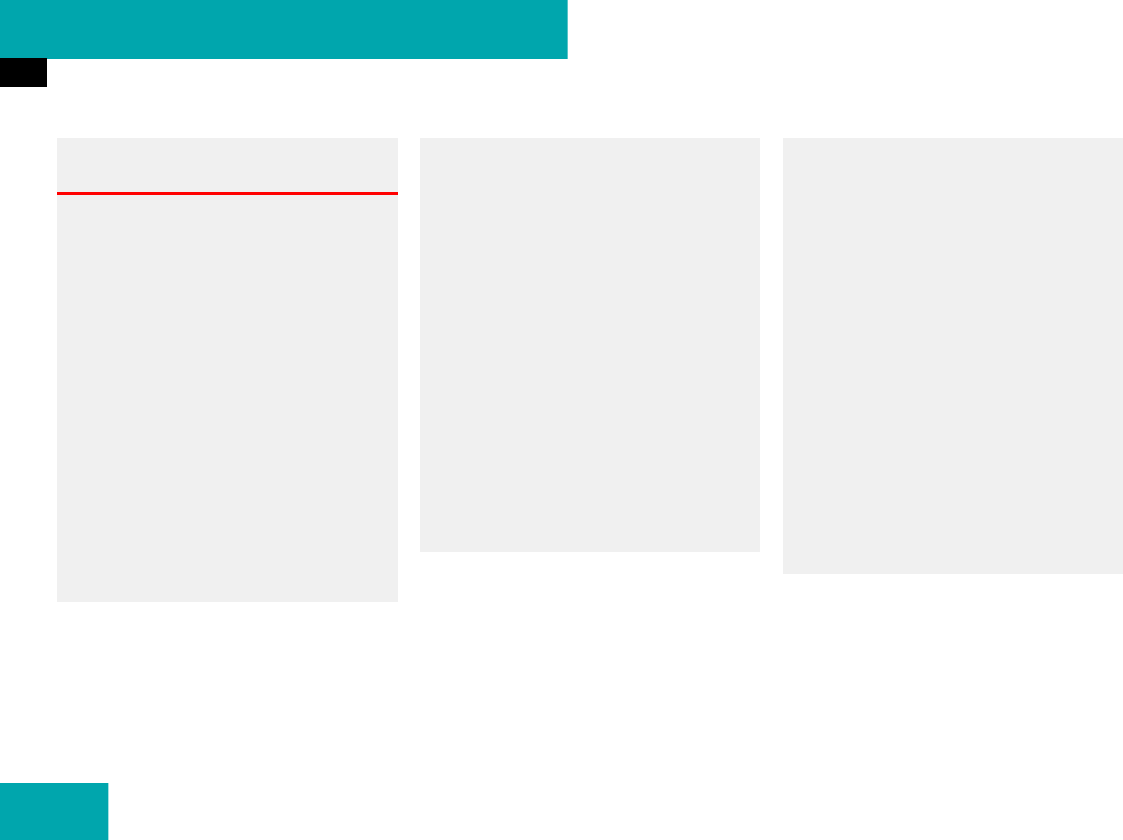
84
Safety and Security
Occupant safety
Warning! G
USE SEAT BELTS PROPERLY
ț Seat belts can only work when used
properly. Never wear seat belts in any
other way than as described in this sec-
tion, as that could result in serious inju-
ries in case of an accident.
ț Each occupant should wear their seat
belt at all times, because seat belts help
reduce the likelihood of and potential
severity of injuries in accidents, includ-
ing rollovers. The integrated restraint
system includes SRS (driver front air
bag, front passenger front air bag, side
impact air bags, window curtain air bags
for side windows), ETD (seat belt emer-
gency tensioning device), and front seat
knee bolsters.
The system is designed to enhance the
protection offered to properly belted oc-
cupants in certain frontal (front air bags
and ETD) and side (side impact and win-
dow curtain air bags and ETD) impacts
which exceed preset deployment
thresholds and in certain rollovers (win-
dow curtain air bags and ETD).
ț Never wear the shoulder belt under your
arm, against your neck or off your shoul-
der. In a frontal crash, your body would
move too far forward. That would in-
crease the chance of head and neck in-
juries. The shoulder belt would also
apply too much force to the ribs or abdo-
men, which could severely injure inter-
nal organs such as your liver or spleen.
ț Never wear seat belts over rigid or
breakable objects in or on your clothing,
such as eyeglasses, pens, SmartKeys
etc., as these might cause injuries.
ț Position the lap belt as low as possible
on your hips and not across the abdo-
men. If the lap belt is positioned across
your abdomen, it could cause serious in-
juries in a crash.
ț Never use a seat belt for more than one
person at a time. Do not fasten a seat
belt around a person and another per-
son or other objects.
ț Seat belts should not be worn twisted.
In a crash, you wouldn’t have the full
width of the seat belt to distribute im-
pact forces. The twisted seat belt
against your body could cause injuries.


















